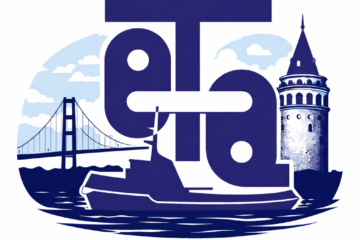A year ago the European Commission invited all interested parties to comment on a proposal to prolong the existing block exemption of liner shipping consortia (i.e. the Consortia Block Exemption Regulation, “Consortia BER”) from the application of Article 101 of the Treaty on the Functioning of the European Union. This existing block exemption will expire on 25 April 2020. As a result of the evaluation, the Commission considers prolonging the Consortia BER by another four years.
The purpose of the evaluation last year was to assess whether the Consortia BER was effective, efficient, coherent with other competition policy measures, relevant, and creating EU added value. The Commission’s services collected data from the general public, numerous stakeholders (carriers, shippers, logistics companies, freight-forwarding companies, port authorities, port service providers, etc.), and National Competition Authorities of the EU by sending public as well as targeted questionnaires. ETA has also participated in this evaluation. Data was collected as well from other international organisations such as the OECD International Transport Forum and UNCTAD.
The Commission decided that overall, the evaluation indicates that the market conditions of the liner-shipping sector still appear to necessitate the existence of a sector-specific BER. Therefore, it is proposed that the Consortia BER application period should be prolonged.
The Commission issued a consultation in November for all interested parties, for the enabling regulation for the Consortia BER. The period of consultation was from 20.11.2019 to 03.01.2020.
ETA has joined forces with a number of associations like CLECAT (European freight forwarders, logistics service providers and customs agents), FEPORT (Federation of Private European Ports) and ESC (European Shippers Association).
In the consultation, ETA expressed that the Commission has failed:
1. to obtain the relevant price and market share data and information readily available from the carriers to enable it to review the operation of the CBER in the light of the major developments in the industry since the last review in 2014;
2. to recognize that a BER is the application of competition law by legislation of general application to a category of defined agreements but is not a self-standing law in the same way as standard EU legislation subject to the EU Better Regulation policy and the related Evaluation process;
3. to assess the five Evaluation criteria accurately and in a balanced way, in any event, in particular because of the failure to obtain the available relevant data and mainly by ignoring important changes in the liner shipping market since 2014.
4. to recognize, despite the evidence provided in the relevant ITF reports including its report on the Impact of Mega ships (2015) and the more recent ITF study on liner shipping alliances, that the reduced possibility of costs rationalisation has resulted in a continuous deterioration in the quality of service and therefore an erosion rather than increase in economic benefits to share with users;
5. to analyze the impact of liner shipping consortia on ports operations and landside transportation.
6. explicitly prohibit consortia members from negotiating jointly shoreside port services and hinterland logistics
Because of these significant shortcomings, ETA sustains it is not admissible for the European Commission to simply extend the CBER for another four years. In those four years, the current CBER regime could cause serious and irreparable harm to the European maritime logistics sector. At most, the Commission should extend the CBER for one year, during which a proper review is conducted. If not, the Commission must let the CBER expire in April 2020.



0 Comments